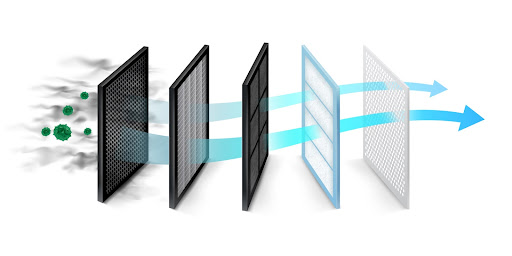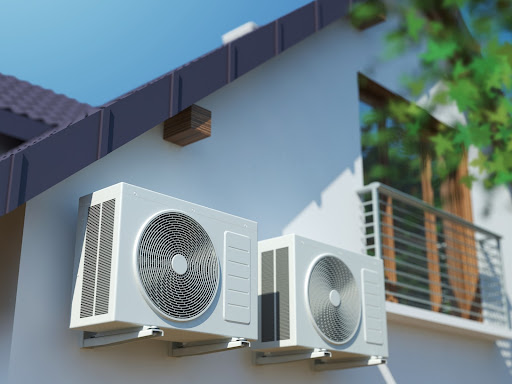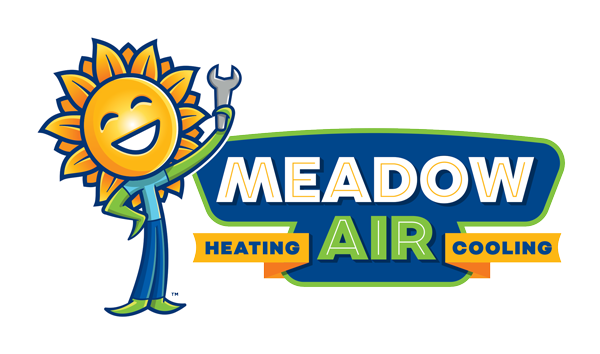Can You Get Sick From AC Blowing on You?
Can you get sick from air conditioning blowing on you? This is a common question AC owners ask. The answer is yes. But neither the cold air coming from your air conditioner nor the unit itself are the culprit for your sickness.
The reasons are the side effects of air conditioning. This means that your HVAC system interacts with the environment to create favorable conditions for certain health issues.
In other words, an AC circulates the air in your house, which makes it easier for pollutants to be dispersed if your space contains them. Those pollutants may trigger your health issues.
Apart from this, there may be other reasons. Let’s dive deeper into the topic and find out some more ways in which AC can make you sick and what you can do to avoid it.
Poor Maintenance

Your air conditioner makes a perfect environment for mold and other bacteria to accumulate if not properly maintained. Germs successfully breed as they have all the needed conditions: moisture, dust, and dirt. They can lead to different health issues, including throat irritation, dry eyes, wheezing, and congestion.
So remember to take a look inside your air ducts and vents regularly to ensure there isn’t a buildup of stagnant water in the evaporator coil of your air conditioner and thus prevent mold growth. If you’ve detected those, call HVAC professionals immediately to solve the problem and stop further infestation.
Low Humidity
If you leave your air conditioner running round the clock, do not be surprised to have such symptoms as dry and irritated eyes, flaky and itchy skin, cold, or flu.
How does AC cool down your room? Refrigerant soaks up heat and moisture from the indoor air. An ideal relative humidity level is between 30 to 50 per cent. Running the unit for too long may extremely reduce it.
As many viruses survive longer in low humidity, you have a higher chance of getting sick. That’s why it’s vital to balance humidity if you want to enhance indoor air quality and home comfort.
Here are some useful tips on how to manage humidity safely:
- Keep the vanes upwards so that the chilled air doesn’t directly impact your skin.
- Use a humidifier or vaporizer.
- Regulate water balance.
- Moisturize your skin.
- Use a smart air conditioner controller or thermostat.
Extremely Low Temperatures
One more reason for air conditioning sickness is extremely low temperatures. Whenever you want to blast your cooling, mind that ultra-cold temperatures lead to:
- Dryness. An excessively dry environment evaporates the moisture in the lining of the nose, causing it to be more susceptible to infections.
- The spread of cold-causing viruses.
- Weakening of the immune response.
- Decrease of the blood flow, including the white blood cells that protect the body against different viruses, making it more susceptible to illness.
What is more, living and working in an ultra-cold environment can result in long-term shivering that may lead to headaches, constant fatigue, and sores of muscles and joints.
To avoid that frustrating air conditioning sickness, try to maintain an ideal room temperature that is not too hot and not too cold. Use a smart AC controller or a smart thermostat to do this well. With those great devices, you’ll be able to save time and energy and maintain a comfortable temperature.
Is Air Conditioning Bad For You?

The answer is definitely not. It can only become a matter of concern when not maintained or cleaned regularly and properly. In fact, an AC unit has plenty of benefits. Check out some of them below.
Alleviate Allergies
An air conditioner is considered a perfect choice for people suffering from various allergies. It filters harmful particles and proves to be beneficial for seasonal allergies like pollen. But be sure to inspect and maintain your unit regularly so you don’t add to your allergy issues.
Better Sleep
A hot, sweaty sleep is everyone’s nightmare. The best way to maintain a cool sleep is by owning an AC unit. It lowers your body temperature at night for a more restful and cool sleep.
Lowers the Risk of Dehydration and Heat Stroke
Since a lack of water is the primary cause of dehydration, one crucial factor some forget to consider is sweat. Our sweat contains water from our bodies. You lose more water through sweating, and it makes you more susceptible to dehydration.
As for heat stroke, you can get it when your body starts to overheat as a result of the temperature outside.
Both of these can be prevented by air conditioning. The cool air in your house will reduce sweating and lower your body temperature.
Boosts Work Performance
While working, the last thing you need is added stress from the heat of a sweltering day. You can lose attention and become stressed due to the temperature of a room. Air conditioning can improve your comfort, keeping your mind clear and ready to tackle daily tasks.
The Bottom Line
To sum up, a well-maintained air conditioner won’t harm your health. However, it can potentially increase the chance of getting sick if it circulates cold-causing viruses. If mold and other bacteria grow in your unit, you may experience a couple of unpleasant symptoms.
To avoid frustrating air conditioning sickness, follow our tips. First and foremost, always inspect your air ducts and vents to ensure there isn’t mold growth. Also, stick to normal humidity. Maintain an ideal room temperature in your home or office to feel comfortable.
Air conditioners play a significant role in our lives, especially during hot summer days. If you face any issues with your favorite unit, don’t waste a moment and turn to your number one HVAC service. Whatever problems you have, Meadow Air will deliver great results for all needs.
